Two years have passed since the VMRO-DPMNE Valandovo Congress, where with the support of 376 delegates Hristijan Mickoski was elected VMRO-DPMNE’s third president.
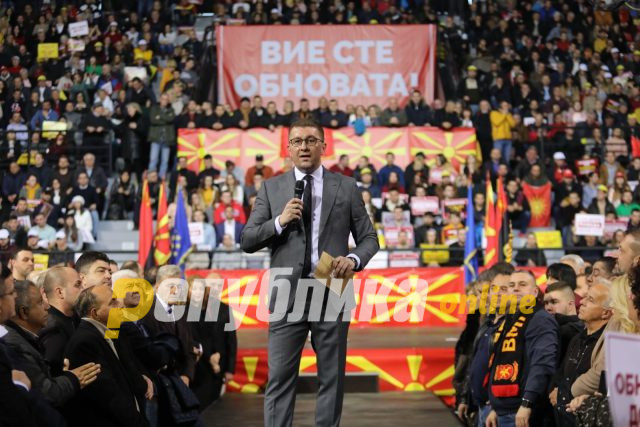
At a time of major political defeats, of party divisiona, after a series of major political events in the country, which strongly affected the overall social and political life in the country, but also within the party that had just become the opposition, Hristian Mickoski Professor at The Faculty of Mechanical Engineering, who was the party’s secretary-general for half a year, became president of VMRO-DPMNE.
How was the only candidate for president Hristijan Mickoski presented at the Valandovo Congress
With 376 votes in favor, Hristijan Mickoski was elected the new VMRO-DPMNE president at the Valandovo congress. From July 30, 2017 to December 23, the same year, Mickoski served as the party’s secretary-general.
During VMRO-DPMNE’s rule he was Chairman of the Board of Directors and CEO of AD ELEM and Professor at the Faculty of Mechanical Engineering at UKIM.
Before the Valandovo Congress, Mickoski was presented as a young, promising party staff. His rich work experience is complemented by over 100 scientific papers, and has won numerous international awards and recognition for innovation. He has participated in the development of a number of international development projects in the field of energy and mechanics.
The fact that AD ELEM wrote in a statement last year, “Elektrani na Makedonija” can only benefit from the use of Hristijan Mickoski’s expertise, professional and internationally recognized capacity, who will continue and advance the company’s development policy” speaks for VMRO-DPMNE’s new Secretary General’s expertise and capacities.
Mickoski from 2015 until the end of VMRO-DPMNE’s term of office was Energy Advisor to the President of the Government, currently an Associate Professor at the Faculty of Mechanical Engineering in Skopje, and in 2011, Mickoski was a Visiting Professor at the Technical University of Vienna.
The new president of VMRO-DPMNE has extensive party experience but was not publicly exposed: he was elected chairman of the VMRO-DPMNE Staff Committee in April and a member of the Commission since July last year, and was part of the Republican election headquarters in 2011, and earlier by the Regional Election Headquarters of Electoral District 4, in the 2008, 2014 and 2016 elections.
Mickoski was also co-chairman of the Energy Commission from 2010 to 2012.
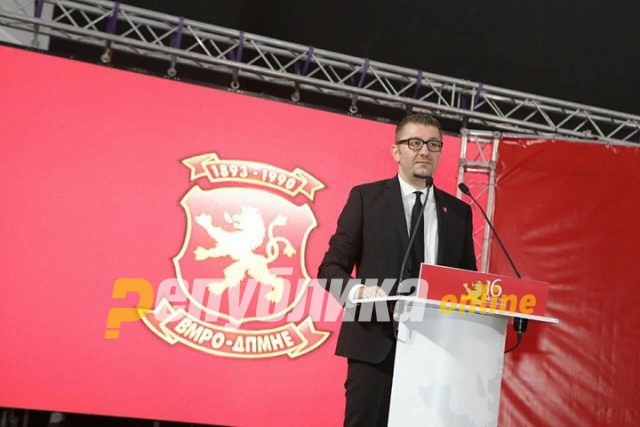
In his speech following the election of the president of the largest party in Macedonia, the 40-year-old Mickoski said:
I will try to involve everyone who wants to help in the fight to dismantle this incapable government led by SDSM, a government without a project. Without vanity, without unnecessary whims, every citizen who wants to help, both in the program and in the organizational part, in the creation and defense of policies and the new vision and plan ahead of us, as well as in the efforts to point out the real problems and fight for a better tomorrow for the whole nation. I want to assure you, from now on I will continue to answer to you, I will be at your disposal daily to decide together, that I promise you.
And if two years ago there was the slightest suspicion that these words were empty sweet phrases translated into victorious speech, today, after two years of hardships and temptations that his party faced, imposed from outside or caused from within, we can freely say that not only did he not stray from his path, but he persisted in turning the idea into a goal.
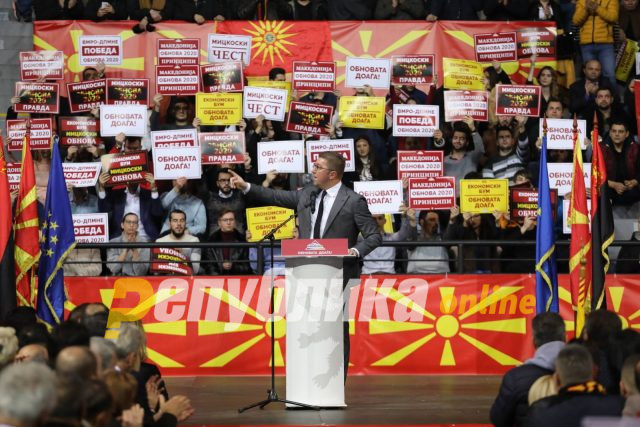
Even more, Mickoski positioned himself firmly at the forefront of the party and managed to impose his principled and political wisdom on the public as a leader who should be given a chance, and who, with his moderation and patriotism, quickly gained public confidence, and managed to consolidate the membership, which was already heavily divided and disappointed.
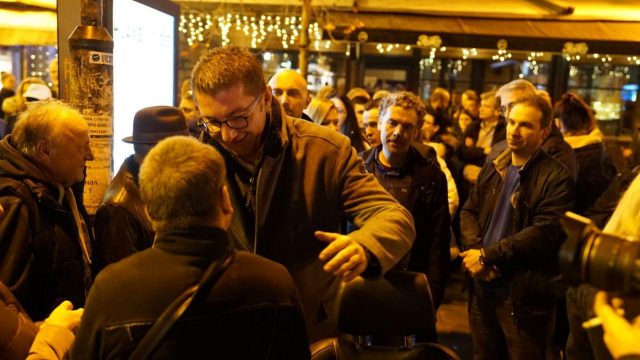
Opinion polls also show that Mickoski has emerged as a modern young European leader, a political figure extraordinary for Macedonian political affairs. From a rating 2.9 percent at the beginning of his term, Mickoski has a 12.1 percent rating on the latest polls.
In other words, he is the political leader with the highest ratings among citizens. By comparison, last year he enjoyed a 2.9 percent confidence among people, and this year it rose to 12.1 percent.
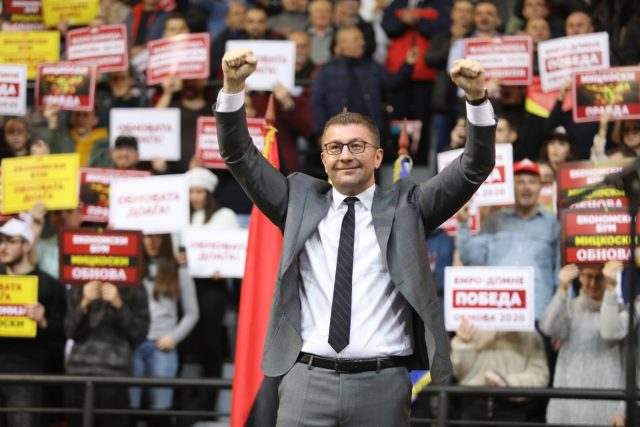
According to the latest poll, most of the respondents answered that they strongly support VMRO-DPMNE or 26.77 per cent, while only 22.78 per cent of the citizens responded they are in favor of SDSM. Right behind them is Levica with 12.68, DUI with 10.58, BESA 9.18 percent, followed by the Alliance of Albanians with 9.09 per cent.
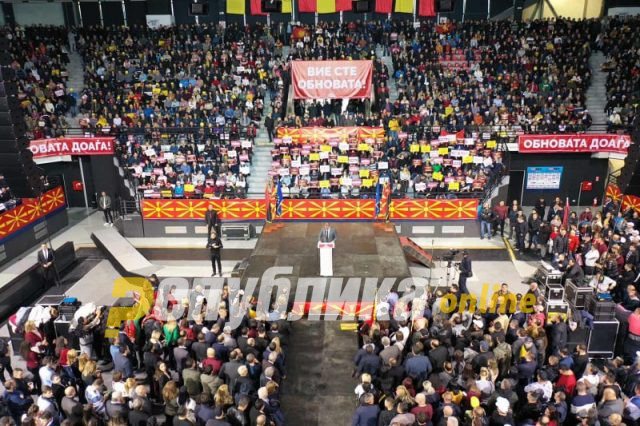
Mickoski showed firm stance and strongly opposed the signing of the Prespa Agreement, the constitutional amendments, which included VMRO-DPMNE members, loudly arguing that the referendum would not provide Macedonia with a green card to join the European Union.
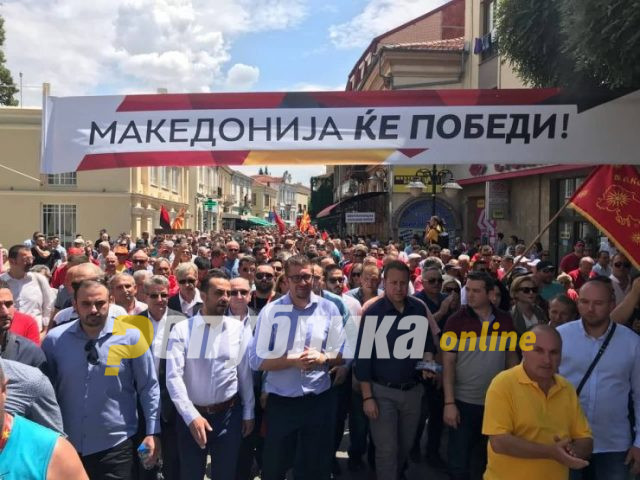
It is undisputed that Mickoski managed to raise the machinery of the largest Macedonian party, and to place VMRO-DPMNE back on top of the Macedonian political scene, and after a certain victory in April in the early parliamentary elections, Mickoski will be facing a challenge, as he himself says, to rectify the great injustice inflicted on Macedonia with the change its constitutional name.
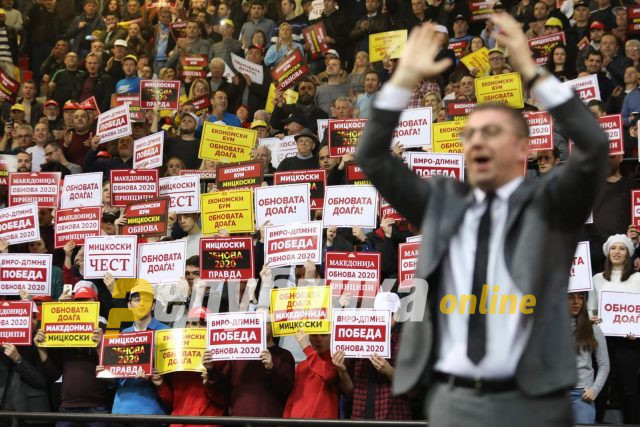
The reality we live with the adjective North in the name of the country, which arose as a result of the damage caused by the current government’s non-state policy, Mickoski will fight to change it by securing a two-thirds majority in Parliament.

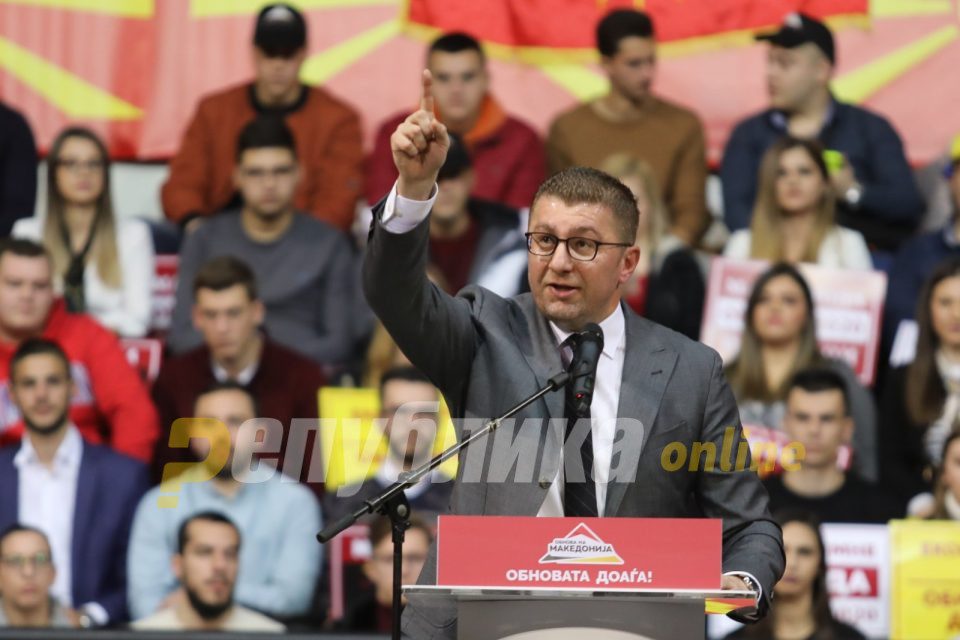
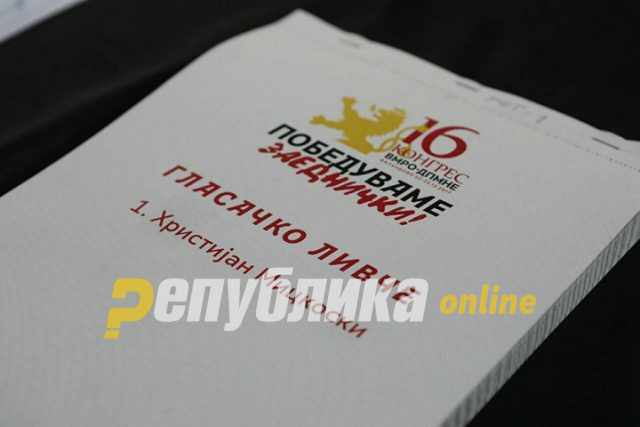
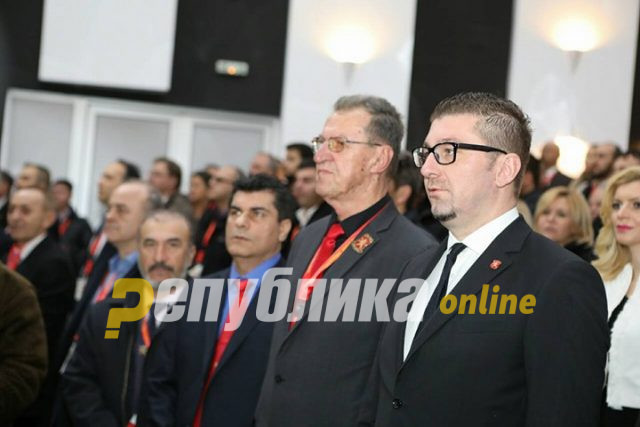
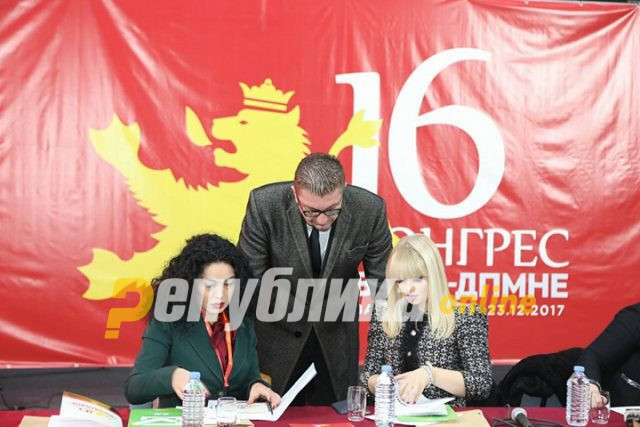
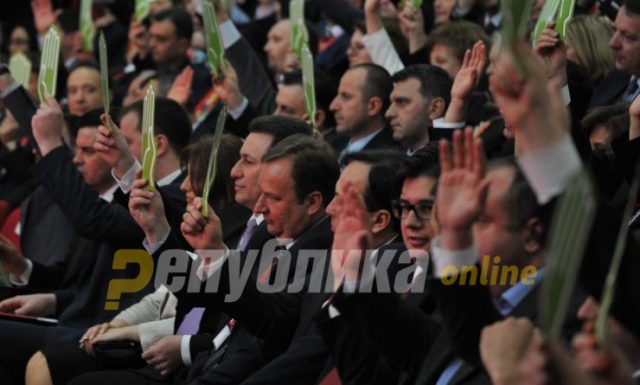



Comments are closed for this post.